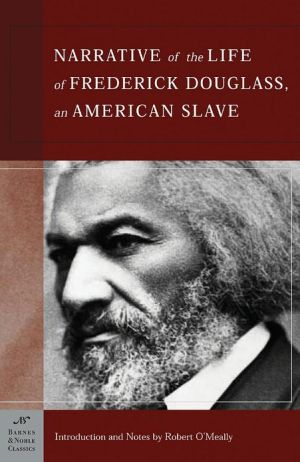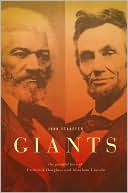Thomas Paine: Enlightenment, Revolution, and the Birth of Modern Nations
A fresh new look at the Enlightenment intellectual who became the most controversial of America's founding fathers\ Despite his being a founder of both the United States and the French Republic, the creator of the phrase "United States of America," and the author of Common Sense, Thomas Paine is the least well known of America's founding fathers. This edifying biography by Craig Nelson traces Paine's path from his years as a London mechanic, through his emergence as the voice of revolutionary...
Search in google:
A thrilling biography of America's most controversial founding father and the revolutionary age he helped to shape Despite being a founder of both the United States and the French Republic, the creator of the phrase "United States of America," and the author of three of the biggest bestsellers of the eighteenth century, Thomas Paine is perhaps the least well known -- and the most controversial -- of the American founding fathers. Unlike such friends and allies as Washington, Franklin, Jefferson, Hamilton, and John Adams, the world s first crusader for the public good has always remained a somewhat indistinct figure. How this lower-class British tradesman managed not only to have written the cornerstone of American democracy, Common Sense, but become a revered citizen of the world are questions that have challenged historians for centuries, and have more often than not left us with biographies that are more monumental than illuminating. In Craig Nelson s Thomas Paine we now have a rich and vivid portrait that does justice to this towering figure of our history, one that brings him to life against the dramatic backdrop of the Revolutionary era and the heady intellectual exhilaration of the Age of Enlightenment. Nelson traces Paine s path from his years as a struggling London mechanic to his journey to seek his fortune in the New World (in which he arrived on a stretcher, after a nearly deadly bout of shipboard typhus); from his early career as a crusading pamphleteer to his emergence as the heroic voice of revolutionary fervor on two continents; from his miraculous escape from execution in Paris during The Terror to his final years in America, where the once-lionized patriot spent his final days nearly impoverished and in the throes of dementia. Throughout his insightful portrait Nelson takes full account of this paradoxical figure, whom some contemporaries judged as brilliant and charismatic and others disparaged as abrasive and egotistical, a cherished patriot who was nonetheless dismissed by John Adams as a "disastrous meteor" and Teddy Roosevelt as a "dirty little atheist." Five years in the making, drawing on both the most recent scholarship and the archives of Philadelphia, Washington, New York, Paris, London, Lewes, and Thetford, Thomas Paine restores this often misunderstood man to the stature that he deserves, and reveals him, a man who famously asserted that "we have it in our power to begin the world over again," to be as much a man of our own time as a paragon of the Enlightenment. Publishers Weekly Enlightenment thinker Thomas Paine would be pleased with this brisk, intellectually sophisticated study of his life. Nelson (The First Heroes) breezes through Paine's first 37 years, his attention tuned to 1774, when Paine moved from England to Philadelphia, bearing glowing letters of introduction from Benjamin Franklin. It was there that "his real life story would begin" with the writing of the hugely influential Common Sense, which attacked the divine right of kings and advocated American independence. Nelson follows Paine as he heads to Europe in 1787, and charts Paine's ambiguous relationship with the French Revolution. During the Reign of Terror, Paine got to work on The Age of Reason, and Nelson insists that, though his subject has been called an atheist, this work advocated 18th-century deism and was right in step with "mainstream Anglo-American religious discourse" of the era. Nelson concludes with a brief, intriguing discussion of Paine's legacy in the United States. The descriptions of Paine birthday galas in New York and Philadelphia 20 years after his 1809 death are fascinating in fact, an entire chapter could have been devoted to Paine's influence in the Jacksonian era. This volume won't replace Eric Foner's classic Tom Paine and Revolutionary America, but it's a welcome addition. (Sept. 25) Copyright 2006 Reed Business Information.
Thomas Paine A Note Acknowledgments\ 1. The Mission of Atonement\ 2. Begotten by a Wild Boar of a Bitch Wolf\ 3. Pragmatic Utopians\ 4. Hell Is Not Easily Conquered\ 5. The Silas Deane Affair\ 6. The Missionary Bereft of His Mission\ 7. Droits de l'Homme, ou Droits du Seigneur?\ 8. The Sovereigns Among Us\ 9. The Religion of Science\ 10. The Perfidious Mr. Morris\ 11. Utopian Dissolves\ 12. Provenance\ Notes Sources Index
\ From Barnes & Noble"Poor Tom Paine! There he lies; nobody laughs and nobody cries; where he has gone or how he fares; nobody knows and nobody cares." This 19th-century street ditty captures the obscurity of America's least known Founding Father. The author of Common Sense and other influential pamphlets helped spark the American Revolution and the upheaval in France, but earned no lasting fame. Indeed, history buff Theodore Roosevelt dismissed Paine (1737-1809) as "a dirty little atheist," and John Adams cast him off as "a disastrous meteor." Craig Nelson's major biography brings Paine alive in a new way. As Joseph J. Ellis noted, "This is the first book to recover him in his own electrical style...with all the flaws and foibles flaming away amidst the greatness."\ \ \ \ \ Publishers WeeklyEnlightenment thinker Thomas Paine would be pleased with this brisk, intellectually sophisticated study of his life. Nelson (The First Heroes) breezes through Paine's first 37 years, his attention tuned to 1774, when Paine moved from England to Philadelphia, bearing glowing letters of introduction from Benjamin Franklin. It was there that "his real life story would begin" with the writing of the hugely influential Common Sense, which attacked the divine right of kings and advocated American independence. Nelson follows Paine as he heads to Europe in 1787, and charts Paine's ambiguous relationship with the French Revolution. During the Reign of Terror, Paine got to work on The Age of Reason, and Nelson insists that, though his subject has been called an atheist, this work advocated 18th-century deism and was right in step with "mainstream Anglo-American religious discourse" of the era. Nelson concludes with a brief, intriguing discussion of Paine's legacy in the United States. The descriptions of Paine birthday galas in New York and Philadelphia 20 years after his 1809 death are fascinating in fact, an entire chapter could have been devoted to Paine's influence in the Jacksonian era. This volume won't replace Eric Foner's classic Tom Paine and Revolutionary America, but it's a welcome addition. (Sept. 25) Copyright 2006 Reed Business Information.\ \ \ Library JournalThis book reflects the resurgence of interest in one of the most neglected and controversial Americans in the era of the Founding Fathers. Independent historian Nelson (The First Heroes: The Extraordinary Story of the Doolittle Raid) includes interesting excursions into topics like medicine, the publishing industry, and, most especially, the intellectual movement that we call the Enlightenment. With a storyteller's gift for the dramatic, Nelson begins with the furtive digging up of Paine's body in a remote American location and its return to England, and he ends with a discussion of the dispersal of Paine's body parts and the recent campaign to locate and reassemble them. Though reliable in its general picture of Paine and his time period, the book is marred by numerous small mistakes. For example, Nelson errs in stating that Henry Clinton was part of the British peace commission sent to America in the spring of 1778, and he mentions that British spy William Bancroft worked in Paris during the American Revolution (that was Edward Bancroft). This book will nonetheless make a good companion piece to Harvey J. Kaye's Thomas Paine and the Promise of America. Recommended for all public libraries. Thomas J. Schaeper, St. Bonaventure Univ. Copyright 2006 Reed Business Information.\ \








